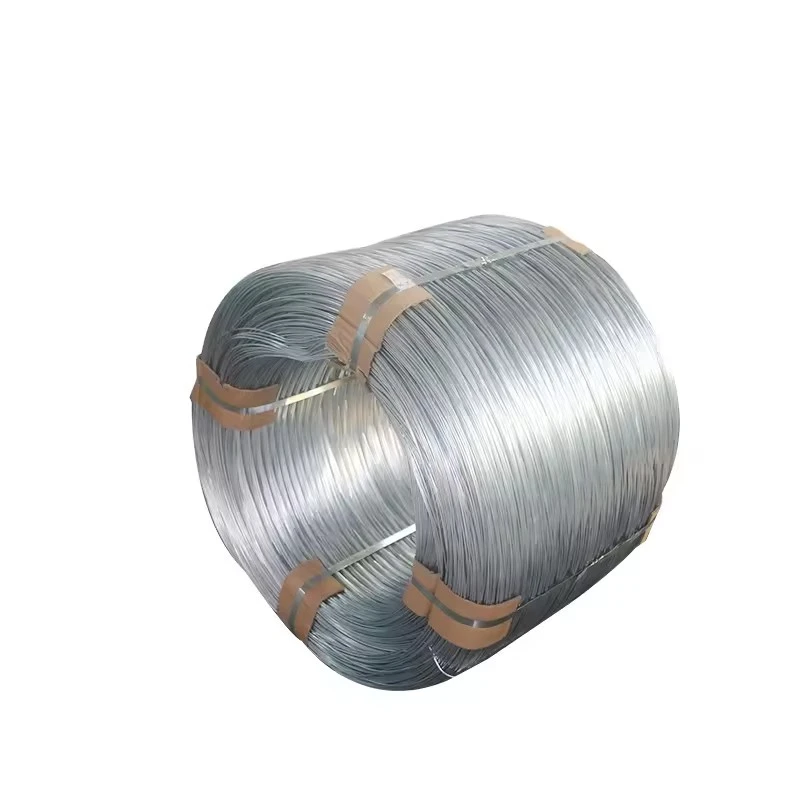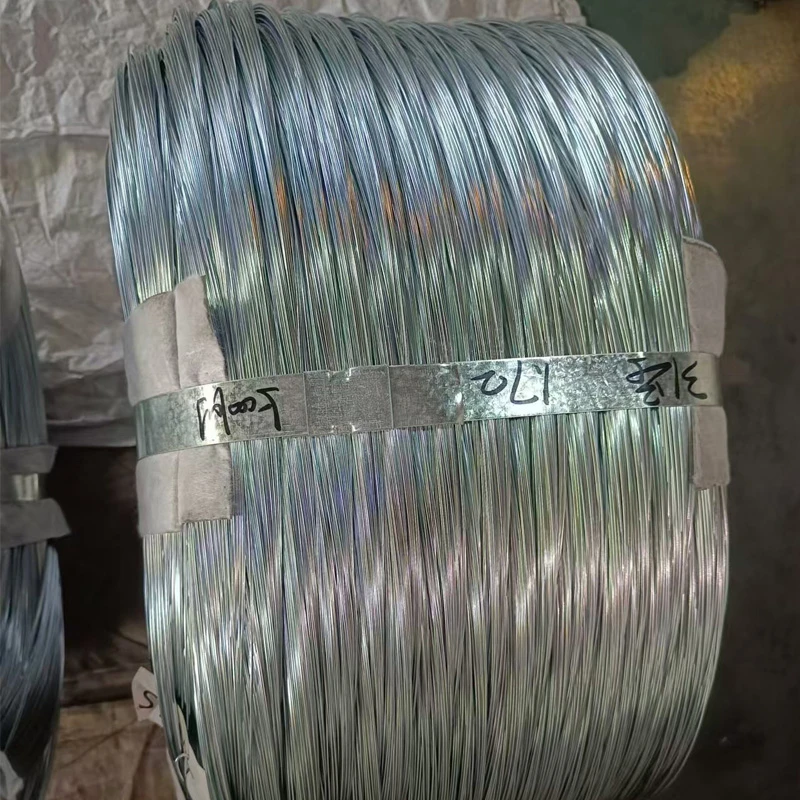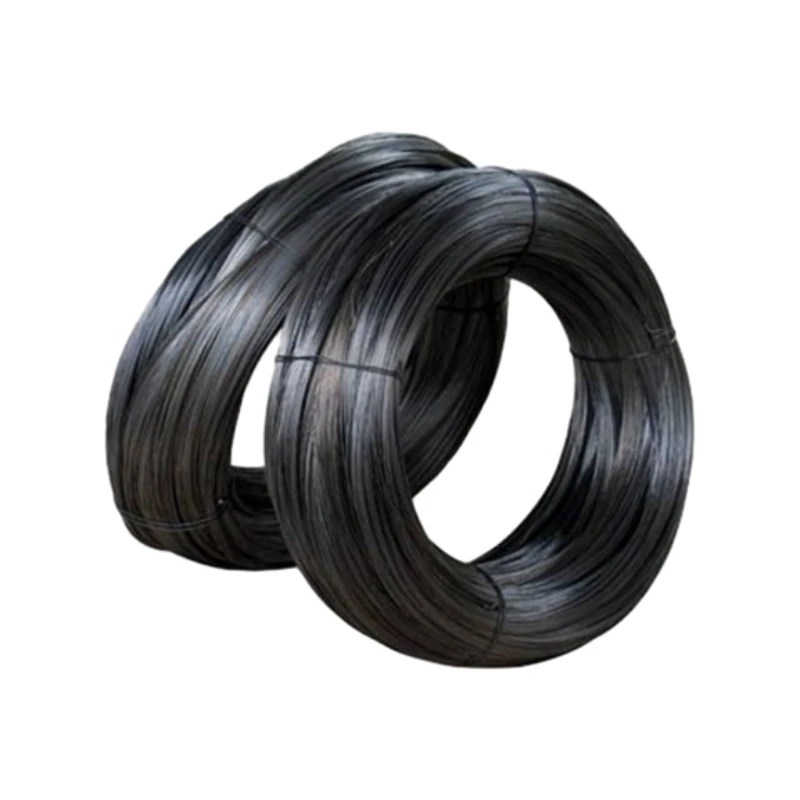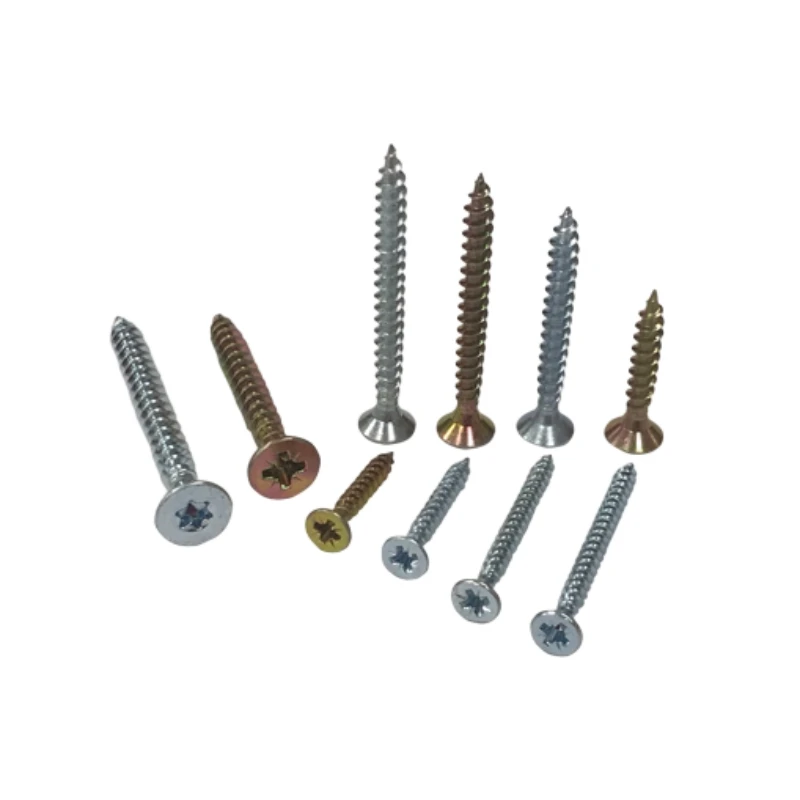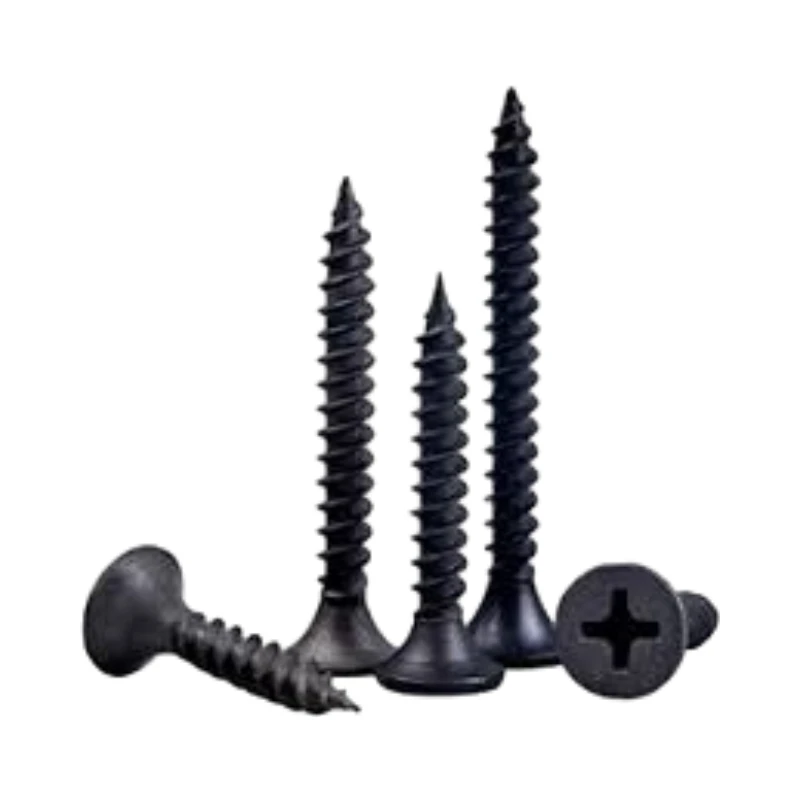
Talk With Us
+86-13601661296
Email Address
admin@sxjbradnail.comHigh-Quality Galvanized Wire for Sale - Durable & Rust-Resistant
In today's rapidly evolving industrial landscape, the demand for resilient, durable, and cost-effective materials is paramount. Among these, galvanized wire for sale stands out as a fundamental component across countless sectors. Renowned for its exceptional corrosion resistance and robust mechanical properties, galvanized wire plays a critical role in everything from foundational construction projects to intricate agricultural applications. This comprehensive guide delves deep into the world of galvanized wire, exploring its technical intricacies, manufacturing excellence, diverse applications, and the vital factors to consider when sourcing it from a reliable supplier.
Industry Trends and Market Dynamics for Galvanized Wire
The global market for galvanized wire continues to experience robust growth, driven by burgeoning infrastructure development, expanding agricultural needs, and the increasing adoption of durable materials in various manufacturing processes. Industry reports project a steady Compound Annual Growth Rate (CAGR) for galvanized wire, reflecting its indispensable nature. For instance, the demand from the construction sector, particularly for fencing, rebar tying, and mesh production, remains a primary driver. Simultaneously, the agricultural sector, relying on galvanized wire for trellising, vineyard management, and animal containment, consistently fuels growth. Innovations in galvanization techniques, such as improved zinc coating adhesion and more environmentally friendly production methods, are also shaping market dynamics, pushing for higher quality and sustainability standards.
Furthermore, the trend towards longer-lasting materials in harsh environments, such as coastal regions or chemically active industrial zones, significantly boosts the appeal of galvanized wire. Its superior resistance to rust and oxidation ensures extended service life, reducing maintenance costs and replacement frequencies, a key factor for industrial consumers. The evolution of applications, including specialized uses like high-security perimeter fencing using galvanized staple wire, showcases the adaptability and enduring relevance of this product.
Unpacking the Technical Parameters of Galvanized Wire
Understanding the technical specifications of galvanized wire is crucial for selecting the right product for specific applications. At its core, galvanized wire is steel wire that has undergone a process of galvanization, applying a protective zinc coating to prevent rust and corrosion. The primary types are hot-dip galvanized wire and electro-galvanized wire, each offering distinct properties based on the coating method.
Key Specifications and Properties:
- Material Composition: Typically made from high-quality low-carbon steel wire (Q195, Q235, SAE1006/1008), providing a good balance of strength and ductility.
- Wire Diameter (Gauge): Ranging from fine gauges (e.g., 0.5mm) to heavy-duty wires (e.g., galvanized wire 4mm, galvanized wire 3mm, up to 6mm or more). The choice of diameter depends heavily on the required tensile strength and application.
- Tensile Strength: Measured in N/mm² or MPa, this indicates the maximum stress the wire can withstand before breaking. Common ranges are 350-550 N/mm² for soft wire and up to 700 N/mm² for high tensile wire.
- Zinc Coating Thickness: This is a critical factor for corrosion resistance, measured in g/m². Hot-dip galvanized wire typically has a thicker coating (e.g., 40-300 g/m²) compared to electro-galvanized wire (e.g., 8-30 g/m²), offering superior protection in harsh conditions.
- Elongation: The percentage increase in length before breaking, indicating the wire's ductility and ability to withstand bending without cracking the zinc coating.
- Coil Weight: Varies based on diameter and customer requirements, typically ranging from small coils (10-25 kg) to large industrial coils (500-1000 kg).
Here's a table summarizing common parameters for galvanized wire for sale:
| Parameter | Description | Typical Range/Value |
|---|---|---|
| Wire Diameter | Available in various gauges, from thin binding wire to thick structural wire. | 0.5mm - 6.0mm (e.g., galvanized wire 3mm, galvanized wire 4mm) |
| Tensile Strength | Resistance to breaking under tension. | 350 - 900 N/mm² (Soft, Medium, High Tensile) |
| Zinc Coating Weight | Amount of zinc per unit surface area, directly impacts corrosion resistance. | Electro-galvanized: 8-30 g/m²; Hot-dip galvanized: 40-300 g/m² |
| Elongation | Measure of wire's ductility. | 10% - 25% |
| Coil Weight | Standard coil sizes for convenience in handling and application. | 25 kg, 50 kg, 100 kg, 500 kg, 1000 kg |
| Standards Compliance | Adherence to international quality and safety standards. | ASTM A641, BS EN 10244-2, ISO 7989, JIS G 3547 |
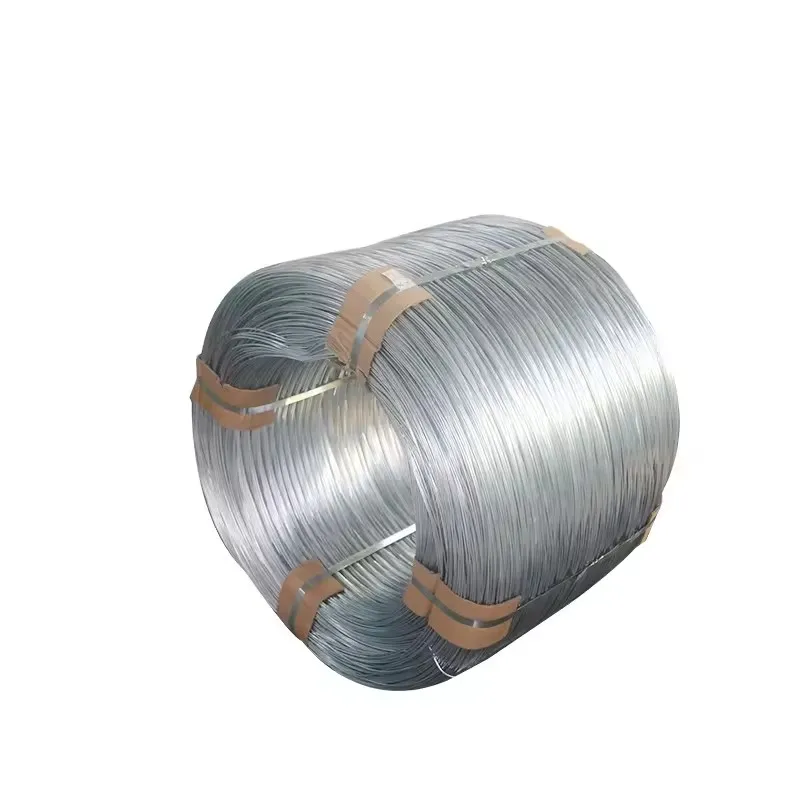
The Meticulous Manufacturing Process of Galvanized Wire
The production of high-quality galvanized wire for sale is a sophisticated process that demands precision and adherence to strict quality controls. Understanding this process, from raw material to finished product, underscores the expertise and technological capabilities of a reputable `factory For Staple Wire`. The primary objective is to create a robust, corrosion-resistant wire that meets diverse industrial demands.
Manufacturing Process Flow:
- Raw Material Inspection: The process begins with selecting high-grade low-carbon steel wire rods (e.g., Q195, Q235, SAE1006/1008). These rods are inspected for chemical composition, surface defects, and mechanical properties to ensure they meet initial quality benchmarks.
- Wire Drawing: The steel wire rods, typically 5.5mm or 6.5mm in diameter, are drawn through a series of dies to reduce their diameter to the desired gauge, such as galvanized wire 3mm or galvanized wire 4mm. This process increases the wire's tensile strength and improves its surface finish. Multi-stage drawing machines ensure consistency and precision.
- Annealing (Heat Treatment): After drawing, the wire can become work-hardened and brittle. Annealing involves heating the wire to a specific temperature and then slowly cooling it. This process recrystallizes the steel's microstructure, restoring its ductility and making it softer and more pliable for subsequent processing and end-use.
- Surface Cleaning and Pickling: Before galvanization, the wire's surface must be impeccably clean to ensure proper zinc adhesion. This involves degreasing, rinsing, and then pickling in an acid bath (e.g., hydrochloric acid) to remove rust, scale, and other impurities. Thorough rinsing follows to eliminate any acid residue.
- Fluxing: The clean wire is then dipped into a flux solution (typically zinc ammonium chloride). The flux acts as a wetting agent, preparing the steel surface to react uniformly with the molten zinc and preventing oxidation before dipping.
- Galvanizing: This is the core step.
- Hot-Dip Galvanizing: The most common method. The cleaned and fluxed wire passes through a bath of molten zinc (typically maintained at 450-460°C). The iron in the steel reacts with the molten zinc to form a series of zinc-iron alloy layers, followed by an outer layer of pure zinc. The thickness of this zinc coating is carefully controlled by the speed at which the wire exits the bath and by wiping dies.
- Electro-Galvanizing: Involves an electrolytic process where zinc is deposited onto the wire from an aqueous zinc salt solution using an electric current. This method typically produces a thinner, more uniform, and brighter coating compared to hot-dip galvanizing, often preferred for aesthetic applications or where a lighter coating is sufficient.
- Cooling and Finishing: After galvanizing, the wire is cooled, often through water quenching or air cooling, to solidify the zinc coating. Depending on the application, it might undergo further treatments like oiling to enhance corrosion resistance during storage or improve its smooth finish.
- Coiling and Packaging: The finished galvanized wire is then precisely coiled onto spools or into large coils, with weights varying according to customer specifications. Proper packaging, often with waterproof paper and hessian cloth or plastic film, ensures the wire is protected during transit and storage.
- Quality Control and Testing: Throughout the entire process, rigorous quality control checks are performed. This includes testing for wire diameter, tensile strength, elongation, zinc coating weight, adhesion of the zinc coating (using bend tests), and uniform appearance. Adherence to international standards such as ASTM A641, BS EN 10244-2, and ISO 7989 is paramount to guarantee product quality and performance.
This meticulous process ensures that the galvanized wire for sale from a specialized `factory For Staple Wire` like us delivers exceptional durability and performance, meeting the stringent requirements of industries like petrochemical, metallurgy, and infrastructure.

Technical Advantages of High-Quality Galvanized Wire
The widespread adoption of galvanized wire across diverse industries is a testament to its compelling technical advantages. These benefits directly translate into long-term savings, enhanced safety, and improved project longevity, making it a preferred choice over untreated steel wire.
- Superior Corrosion Resistance: This is the hallmark advantage. The zinc coating acts as a physical barrier, preventing corrosive substances from reaching the steel. Furthermore, zinc is a sacrificial anode, meaning it will corrode before the steel does, even if the coating is scratched. This dual protection mechanism significantly extends the wire's lifespan, especially in harsh environments like coastal areas, industrial zones with chemical exposure (e.g., petrochemical facilities), or agricultural settings with constant moisture.
- Exceptional Durability and Longevity: Thanks to its galvanized layer, the wire can withstand extreme weather conditions, UV radiation, and mechanical abrasion much better than bare steel. This translates to reduced maintenance and replacement costs over decades, offering an excellent return on investment. For example, a properly galvanized wire can last 20-50 years, depending on the environment and zinc coating thickness, far exceeding the life of ungalvanized wire.
- High Strength-to-Weight Ratio: While offering excellent corrosion protection, the galvanization process does not significantly compromise the wire's inherent tensile strength. This allows for lighter structures or fencing solutions that still provide robust security and support.
- Versatility and Workability: Despite its strength, good quality galvanized wire retains sufficient ductility to be easily bent, tied, woven, and fabricated into various forms without cracking or peeling the zinc coating. This workability is crucial for applications requiring intricate shapes, such as mesh, baskets, or specialized `Staple Wire`.
- Cost-Effectiveness: While the initial cost of galvanized wire for sale might be slightly higher than plain steel wire, its extended lifespan and minimal maintenance requirements result in significantly lower lifecycle costs. The need for frequent repairs or replacements is drastically reduced, leading to substantial long-term savings. This makes it an economically sound choice for both large-scale industrial projects and smaller agricultural uses.
- Environmental Benefits: Steel and zinc are both recyclable materials. At the end of its long service life, galvanized wire can be recycled, contributing to a circular economy and reducing environmental impact. The galvanizing process itself has also become more environmentally friendly, with efforts to reduce emissions and recycle by-products.
Diverse Application Scenarios of Galvanized Wire
The robust properties of galvanized wire make it an indispensable material across a vast spectrum of industries and applications. Its resistance to corrosion and high durability ensure reliable performance in demanding environments.
Key Application Sectors:
- Construction Industry:
- Fencing: Widely used for chain-link fences, welded mesh fences, and barbed wire, providing security for properties, construction sites, and livestock enclosures.
- Reinforcement: Utilized in concrete reinforcement as binding wire for rebar, gabion baskets for retaining walls, and mesh panels for plastering.
- Roofing: Employed as tie wire for roof trusses and other structural components.
- Agriculture and Horticulture:
- Trellising: Essential for supporting vines, fruit trees, and other climbing plants in vineyards and orchards.
- Animal Enclosures: Used for creating durable and safe enclosures for livestock and poultry.
- Baling Wire: Applied in balers for hay and straw, especially galvanized wire 3mm or galvanized wire 4mm for robust baling.
- Industrial and Manufacturing:
- Mesh Production: Forms the basis for various types of mesh, including protective screens, filtration meshes, and conveyor belts.
- Cable Armoring: Used as armoring for electrical cables, providing mechanical protection.
- Binding and Tying: Ideal for packaging, bundling, and securing goods due to its strength and resistance to rust, including its use as `Staple Wire` or `galvanized Wire For Staple Pins` in packaging industries.
- Manufacturing Components: Integrated into the production of springs, hangers, and other wire-formed products.
- Oil & Gas and Petrochemical: In these corrosive environments, galvanized wire is often used for non-structural components, fencing, and security applications where resistance to chemical fumes and moisture is critical. Its anti-corrosion properties significantly extend the lifespan of installations.
- Water Supply and Drainage: For applications requiring rust-resistant ties or mesh within water treatment plants or drainage systems, galvanized wire provides the necessary durability to withstand constant exposure to moisture and potential chemical agents.
- Metallurgy and Mining: Used for various binding, support, and mesh applications where exposure to harsh dust, moisture, and abrasive conditions demands high-strength, corrosion-resistant materials.
In all these scenarios, the primary advantage of using galvanized wire is its enhanced service life and reduced maintenance, leading to significant long-term cost savings and improved operational efficiency. The ability to source diverse specifications like galvanized wire 3mm and galvanized wire 4mm further broadens its applicability.
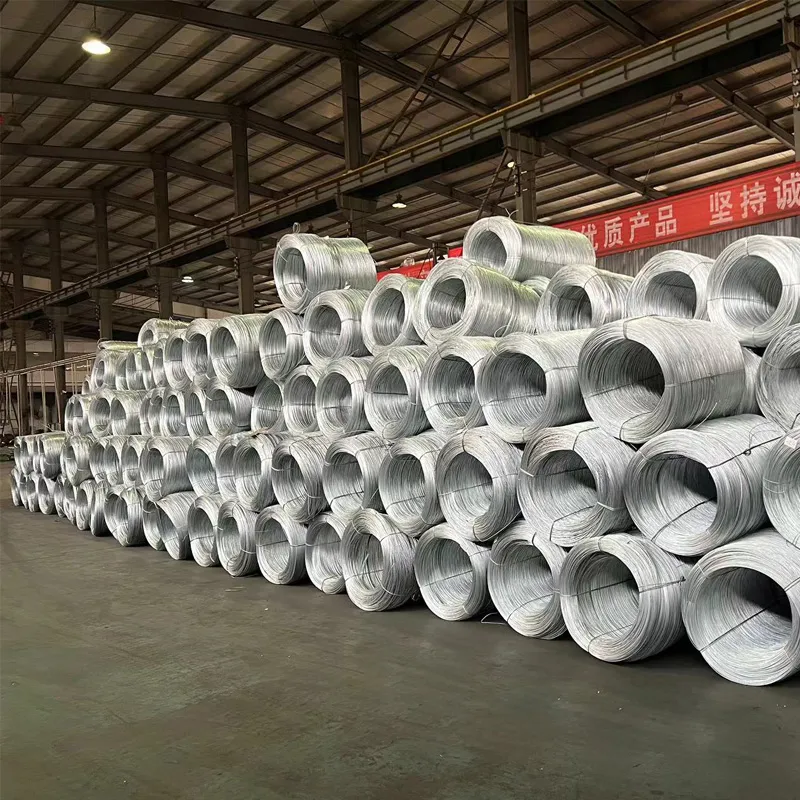
Choosing the Right Partner: Manufacturer Comparison and Customization Solutions
When seeking high-quality galvanized wire for sale, selecting a reputable manufacturer is as crucial as understanding the product itself. A reliable `factory For Staple Wire` can provide not only standard products but also tailor-made solutions, ensuring your specific project requirements are met with precision and efficiency.
Key Criteria for Manufacturer Comparison:
- Certifications and Quality Standards: Prioritize manufacturers adhering to international quality management systems like ISO 9001. This demonstrates a commitment to consistent quality across all production stages. Additionally, confirm compliance with product-specific standards such as ASTM A641 (Standard Specification for Zinc-Coated (Galvanized) Carbon Steel Wire), BS EN 10244-2 (Steel wire and wire products - Non-ferrous metallic coatings on steel wire - Part 2: Zinc or zinc alloy coatings), or other relevant industry norms.
- Manufacturing Capabilities and Technology: Assess the factory's production capacity, machinery (e.g., advanced wire drawing lines, automated galvanizing baths), and quality control equipment. A modern facility often indicates a higher level of precision and consistency in product quality, including specialized production for `Staple Wire` and `galvanized Wire For Staple Pins`.
- Experience and Industry Reputation: A manufacturer with a long history and positive industry reputation, particularly for exporting galvanized wire, signifies reliability and proven expertise. Look for companies with established relationships with key industries and a track record of successful projects.
- Customization Capabilities: The ability to provide customized solutions is a significant advantage. This includes:
- Diameter and Gauge: Producing specific sizes like galvanized wire 3mm or galvanized wire 4mm, or even less common gauges.
- Zinc Coating Thickness: Adjusting the zinc layer to meet specific corrosion resistance requirements for different environments.
- Tensile Strength: Tailoring the wire's strength (soft, medium, or high tensile) to suit the application (e.g., binding wire vs. structural wire).
- Coil Weight and Packaging: Offering flexible packaging options, from small coils for retail to large jumbo coils for industrial machinery.
- Surface Finish: Providing options for bright, dull, or oiled finishes as per application needs.
- Customer Support and After-Sales Service: Evaluate their responsiveness, technical support, and willingness to address any post-purchase concerns. A strong customer service framework builds trust and ensures a smooth supply chain.
- Lead Times and Logistics: Understanding their typical lead times for production and their efficiency in managing global logistics is vital, especially for large orders or time-sensitive projects.
The Importance of Certifications and Authoritative Standards:
Adherence to standards like ISO 9001:2015 for quality management is non-negotiable. This certification ensures that the manufacturer has a robust system in place for consistent quality, from raw material sourcing to final product delivery. Furthermore, compliance with product-specific standards like ASTM A641 or BS EN 10244-2 guarantees that the galvanized wire meets predefined performance criteria for zinc coating weight, adhesion, and mechanical properties. This commitment to certified quality enhances trust and reduces risks for buyers.
Real-World Application Cases and Customer Experience
The true value of galvanized wire for sale is best illustrated through its successful deployment in various projects and the positive feedback from satisfied clients. Our experience as a dedicated `factory For Staple Wire` highlights the tangible benefits our products bring to diverse industries.
Case Study 1: Large-Scale Agricultural Fencing Project
A major agricultural cooperative in a humid coastal region required durable fencing for extensive livestock pastures and crop protection. Traditional ungalvanized wire fences had succumbed to rust within a few years, leading to significant maintenance costs and security breaches. We supplied thousands of tons of hot-dip galvanized wire 4mm and galvanized wire 3mm, customized with a thick zinc coating (250 g/m²) for enhanced corrosion resistance. After three years, the fences remain in excellent condition, with no signs of rust, demonstrating superior longevity and significant cost savings on maintenance for the client. The ease of installation due to the wire's consistent quality was also highly praised.
Case Study 2: Industrial Packaging Solution with `Staple Wire`
A leading packaging manufacturer specializing in heavy-duty cardboard boxes needed a reliable and rust-resistant `Staple Wire` for their automatic stapling machines. Their previous supplier's wire often jammed due to inconsistent diameter and suffered from premature corrosion, affecting product integrity. We provided custom-sized `galvanized Wire For Staple Pins` with precise diameter tolerance and a uniform electro-galvanized coating. The client reported a significant reduction in machine downtime (over 30%), improved staple consistency, and complete elimination of rust issues during storage and transit. This consistency is a testament to our precision manufacturing capabilities as a specialized `factory For Staple Wire`.
Customer Feedback Highlights:
- "The galvanized wire we received for our vineyard trellising was incredibly consistent in diameter and strength. It handled the bending and tensioning perfectly, and we expect it to last for decades in our climate." - Viticulture Manager, California
- "As a construction company, we rely on high-quality binding wire. Your galvanized wire for sale has been a game-changer for our rebar tying; it's easy to work with and ensures the structural integrity of our concrete components against the elements." - Procurement Head, Major Construction Firm
- "The customized galvanized staple wire for our heavy-duty packaging line has resolved all our previous issues. The smooth feeding and superior rust resistance mean our products arrive at their destination securely and professionally." - Operations Director, Packaging Solutions Inc.
These real-world examples and testimonials underscore our commitment to providing `Staple Wire` and `galvanized Wire For Staple Pins` that not only meet but exceed industry expectations, building long-term trust and client satisfaction.
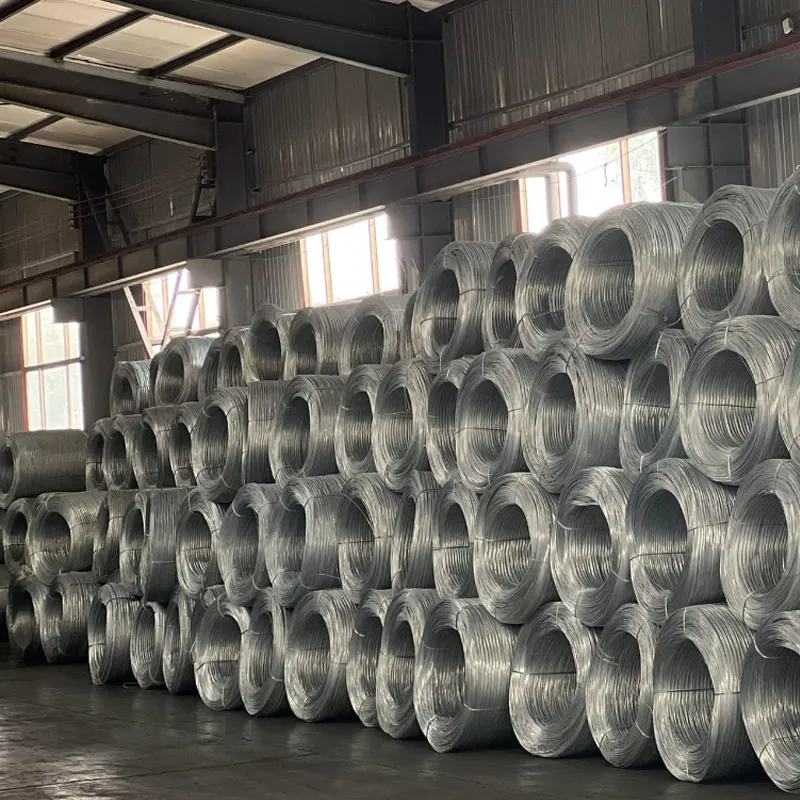
Ensuring Trustworthiness: Quality Assurance, Delivery, and Support
Establishing trustworthiness with clients seeking galvanized wire for sale goes beyond merely supplying a product; it encompasses a holistic approach to quality, transparency, and unwavering customer support. As a dedicated `factory For Staple Wire`, we prioritize these elements to build lasting partnerships.
Rigorous Quality Assurance & Testing:
Our commitment to quality is embedded in every stage of the manufacturing process, from raw material selection to final product inspection. We adhere to stringent international standards, including ISO 9001:2015, ensuring a robust Quality Management System. Key tests performed include:
- Chemical Composition Analysis: Verifying the exact alloy content of raw steel wire rods.
- Mechanical Property Testing: Measuring tensile strength, elongation, and yield strength to ensure the wire performs under stress.
- Zinc Coating Weight Test: Precisely measuring the thickness of the zinc layer (e.g., using coulometric methods or magnetic gauges) to guarantee corrosion resistance meets specified standards (e.g., ASTM A641, BS EN 10244-2).
- Adhesion Test: Performing bend tests (e.g., wrapping the wire around a mandrel) to ensure the zinc coating does not flake or crack, indicating strong adhesion to the steel substrate.
- Uniformity Test: Checking for consistent coating thickness along the entire length of the wire.
- Visual Inspection: Ensuring a smooth, uniform surface finish free from defects, crucial for applications like `galvanized Wire For Staple Pins`.
These comprehensive tests ensure that every batch of galvanized wire leaving our factory meets the highest quality benchmarks and provides the expected service life, often projected for 20-50 years depending on environmental conditions and coating thickness.
Transparent Delivery Cycle Explanation:
We understand that timely delivery is critical for project success. Our delivery cycle is meticulously planned and communicated:
- Order Confirmation: Upon receiving a confirmed order, including specifications (e.g., galvanized wire 3mm, galvanized wire 4mm), quantity, and packaging details, a production slot is allocated.
- Production Schedule: Manufacturing commences, following the detailed process outlined above. Production lead times typically range from 7-20 days, depending on the volume and customization required.
- Quality Inspection: Post-production, a final round of quality checks is conducted.
- Packaging and Logistics: Wire is carefully packaged to prevent damage during transit. For international orders, all necessary customs documentation is prepared.
- Shipping: Goods are dispatched via trusted logistics partners (sea freight, air freight, or land transport, depending on destination and urgency).
- Tracking and Communication: Clients receive regular updates on their order status, including shipping details and estimated arrival times.
Comprehensive Quality Warranty:
We stand behind the quality of our galvanized wire for sale. All our products come with a comprehensive quality warranty, covering manufacturing defects and non-compliance with agreed-upon specifications. Our warranty terms are clearly stated, providing clients with peace of mind and assurance in their investment. In the rare event of a quality issue, our dedicated customer support team is committed to prompt investigation and resolution, including replacement or compensation as per the warranty terms.
Dedicated Customer Support:
Our commitment to client satisfaction extends beyond product delivery. We offer robust customer support, including:
- Pre-sales Consultation: Expert advice on selecting the right type of galvanized wire, specifications (e.g., for `Staple Wire` or galvanized wire 3mm), and customization options.
- Technical Support: Assistance with product integration, application queries, and troubleshooting.
- After-sales Service: Responsive support for any issues, inquiries, or feedback post-purchase.
- Multilingual Support: Our team is equipped to communicate effectively with international clients, ensuring clear and efficient communication.
This comprehensive approach to quality, delivery, and support solidifies our position as a trustworthy and reliable partner in the supply of galvanized wire.
Professional FAQ on Galvanized Wire for Sale
Understanding the nuances of galvanized wire is key to making informed purchasing decisions. Here are answers to some frequently asked professional questions:
1. What is galvanization, and why is it important for wire?
Galvanization is the process of applying a protective zinc coating to steel or iron to prevent rusting. It's crucial for wire because steel alone is highly susceptible to corrosion, especially in moist or chemically aggressive environments. The zinc acts as a barrier and, more importantly, as a sacrificial anode, meaning it corrodes preferentially to the steel, protecting the underlying metal even if the coating is scratched. This significantly extends the wire's lifespan and reduces maintenance.
2. What is the difference between hot-dip galvanized and electro-galvanized wire?
The primary difference lies in the application method and resulting coating properties.
- Hot-dip galvanized wire: Produced by immersing steel wire in a bath of molten zinc. This results in a thicker, more durable coating with a rougher, matte finish and excellent corrosion resistance due to the formation of zinc-iron alloy layers. It's ideal for outdoor and harsh environments.
- Electro-galvanized wire: Produced by electro-deposition of zinc from an electrolyte solution. It typically has a thinner, more uniform, and brighter finish. While offering good rust protection, its corrosion resistance is generally less than hot-dip galvanized wire, making it suitable for indoor applications or where aesthetics are important, such as `galvanized Wire For Staple Pins`.
3. How does zinc coating weight relate to the lifespan of galvanized wire?
Zinc coating weight, measured in grams per square meter (g/m²), is directly proportional to the lifespan of galvanized wire. A higher zinc coating weight means more sacrificial zinc is available to protect the steel, thus providing longer-lasting corrosion resistance. For example, a hot-dip galvanized wire with 200 g/m² coating will last significantly longer than one with 40 g/m² in the same environment.
4. How do I choose the right wire diameter (e.g., galvanized wire 3mm vs. galvanized wire 4mm)?
The wire diameter (or gauge) should be selected based on the required tensile strength, load-bearing capacity, and application. Thicker wires like galvanized wire 4mm offer greater strength and rigidity, suitable for heavy-duty fencing, structural support, or baling. Thinner wires like galvanized wire 3mm or finer gauges are more flexible and often used for binding, intricate mesh, or general utility purposes where high tensile strength isn't the primary concern. Always consider the specific stress and environmental factors of your project.
5. What are the common international standards for galvanized wire?
Several international standards govern the production and quality of galvanized wire, ensuring consistency and performance. Key standards include:
- ASTM A641: Standard Specification for Zinc-Coated (Galvanized) Carbon Steel Wire.
- BS EN 10244-2: Steel wire and wire products - Non-ferrous metallic coatings on steel wire - Part 2: Zinc or zinc alloy coatings.
- ISO 7989: Steel wire and wire products - Zinc-coated steel wire for fences and general uses.
- JIS G 3547: Zinc coated steel wire for general purpose.
6. Can galvanized wire be welded, and what precautions should be taken?
While galvanized wire can be welded, it requires specific precautions. The zinc coating vaporizes at welding temperatures, producing zinc fumes that are hazardous if inhaled (can cause metal fume fever). Welding galvanized wire should always be done in a well-ventilated area with appropriate personal protective equipment (respirator, gloves, safety glasses). Additionally, the heat from welding can damage the zinc coating near the weld, compromising corrosion resistance in that area. For critical structural applications, it's often better to use mechanical fasteners or post-weld galvanization if possible.
7. What factors affect the service life of galvanized wire in real-world applications?
Several factors influence the actual service life of galvanized wire:
- Zinc Coating Thickness: Thicker coatings provide longer protection.
- Environmental Conditions: Highly corrosive environments (e.g., coastal areas with salt spray, industrial areas with acidic rain, high humidity) will degrade the coating faster.
- Mechanical Abrasion: Constant rubbing or impact can wear down the zinc coating.
- Chemical Exposure: Contact with certain chemicals (e.g., strong acids or alkalis) can accelerate zinc corrosion.
- Maintenance: While generally low maintenance, damage to the coating should be repaired if possible to prevent localized corrosion.
Conclusion: Your Trusted Source for Premium Galvanized Wire
In conclusion, galvanized wire is an indispensable material, offering a unique combination of strength, ductility, and unparalleled corrosion resistance. Its widespread adoption across construction, agriculture, and various industrial sectors, including specialized uses like `Staple Wire` and `galvanized Wire For Staple Pins`, underscores its critical role in modern infrastructure and manufacturing. The continuous evolution of galvanization techniques and stringent quality control measures ensure that products like galvanized wire 3mm and galvanized wire 4mm meet the highest performance standards, delivering long-term value and reliability.
Choosing a reputable `factory For Staple Wire` that adheres to international quality certifications like ISO 9001 and delivers comprehensive customer support is paramount. By understanding the intricate manufacturing process, the crucial technical parameters, and the diverse application scenarios, buyers can confidently source galvanized wire for sale that perfectly aligns with their project requirements, ultimately leading to enhanced durability, reduced maintenance, and superior performance in the most demanding environments. Invest in quality galvanized wire to secure your projects' longevity and success.
References and Further Reading:
- ASTM International. (n.d.). ASTM A641/A641M - 18 Standard Specification for Zinc–Coated (Galvanized) Carbon Steel Wire. Retrieved from https://www.astm.org/a0641_a0641m-18.html
- BSI Group. (n.d.). BS EN 10244-2:2009 Steel wire and wire products. Non-ferrous metallic coatings on steel wire. Zinc or zinc alloy coatings. Retrieved from https://shop.bsigroup.com/ProductDetail/?pid=000000000030206140
- Galvanizers Association. (n.d.). Durability of Galvanized Steel. Retrieved from https://www.galvanizing.org.uk/durability/
- Wire Association International. (n.d.). Technical Papers & Journals. Retrieved from https://www.wirenet.org/publications/wire-journal-international/
-
21 Gauge 1/2 Inch Crown 84 Series Fine Wire Staple-Baoding Yongweichangsheng Metal Produce Co., Ltd.|Durable Galvanized Steel&Precision Upholstery ApplicationsNewsAug.09,2025
-
21 Gauge 1/2 Inch Crown 84 Series Fine Wire Staple - Baoding Yongweichangsheng | Precision&DurabilityNewsAug.09,2025
-
21 Gauge 1/2 Inch Crown 84 Series Fine Wire Staple - SXJ Staple|Precision Fastening,DurabilityNewsAug.09,2025
-
21 Gauge 1/2 Inch Crown 84 Series Fine Wire Staple-Baoding Yongweichangsheng|Industrial Fastener,Corrosion ResistantNewsAug.08,2025
-
21 Gauge 1/2 Inch Crown 84 Series Fine Wire Staple - Baoding Yongweichangsheng|Precision,Durability,VersatilityNewsAug.08,2025












































































































